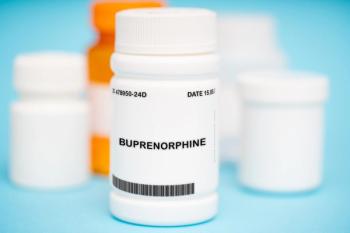
Partial refill, investigational drugs subjects of compliance concern
IG focuses on fraud in partial refills and billing for experimental drugs
GOVERNMENT and LAW
Partial refill, investigational drugs subjects for compliance concerns
Partial prescription refills and billing for drugs used in clinical trials were among the subjects raised at this year's Fraud & Compliance Forum sponsored by the American Health Lawyers Association and the Health Care Compliance Association.
The big news was Inspector General Janet Rehnquist's release of a draft version of her office's "Compliance Program Guidance for Pharmaceutical Manufacturers." Published in the Federal Register on Oct. 3, it offers guidance to drugmakers on how to properly market their drugs to healthcare providers and how to set up a compliance program to be sure that employees are following the rules.
Rehnquist said such guidance should be welcome in an era where many corporate executives are being called on the carpet for malfeasance. "This compliance program creates internal checks and balances that can apply throughout the corporation, not just in the healthcare piece," she said. "It enhances the corporation's reputation for integrity."
However, Mary Reardon, senior counsel in the IG's Office of Counsel, said in a briefing following Rehnquist's talk that retail pharmacies and pharmacy benefit management companies were deliberately excluded from the guidance report because "their [issues] are different, and we wanted to keep the focus on manufacturers."
The IG's office does not have any plans to issue a separate guidance for retail pharmacies and pharmacy benefit managers, although the office is not ruling it out for the future, she said. One of the issues that has come up at the retail pharmacy level is how to handle partial refills, which were the subject of a recent government action against the Walgreen pharmacy chain. In that case, which resulted in the pharmacy's payment of $7 million to settle the matter, Walgreen's was accused of billing the government for full refills of patient prescriptions when it had actually only partially refilled them.
Another area of interest was how to properly bill the government for drugs used in clinical trials. The national coverage decision issued in September 2000 by the Centers for Medicare & Medicaid Services authorized CMS to pay for the costs of health care for Medicare patients during routine clinical trials.
To qualify as a valid clinical trial, the trial must meet certain criteria, said Laura Callahan, an attorney with Ober Kaler Grimes & Shriver in Baltimore. For example, the trial must have a "therapeutic intent" for patients with a diagnosed disease and be deemed to have "desirable characteristics," such as improving health outcomes and meeting standards for scientific integrity.
Clinical trials are also among the few instances where services are covered even in the control group of patients, for whom the services are not medically necessary, she noted. CMS also will pay hospital costs for patients who are admitted solely for the purpose of receiving the investigational drug or device.
In most cases, the cost of the experimental drug itself is not covered, Callahan noted. However, that rule, which is part of the national coverage decision, does not supersede any policies made by the local Medicare carrier. Therefore, it is possible that the carrier will allow the healthcare provider to bill for medication, she said. Generally, the manufacturer or patient may be billed for the drug if the manufacturer has agreed to pay for the cost of the drug, and if an Advance Beneficiary Notice is obtained from the beneficiary or whoever is the responsible party.
Callahan listed several steps to ease compliance with government rules for billing for exper-imental drugs:
Develop an internal process for obtaining new clinical drug and device trial information from all departments.
Have the Institutional Review Board (IRB) notify someone in the billing office as soon as a drug or device is being considered or has been approved for use.
Determine whether a coverage decision must first be obtained from the Medicare contractor.
Develop facility policies and procedures that delineate responsibility for verifying coverage and tracking clinical trial reimbursement information.
Have the IRB forward a copy of the informed-consent form for the investigational drug to the billing office, along with the protocol and the anticipated date and time of service.
Joyce Frieden
The author is a writer in the Washington, D.C., area.
Joyce Frieden. Partial refill, investigational drugs subjects of compliance concern.
Drug Topics
2002;20:45.
Newsletter
Pharmacy practice is always changing. Stay ahead of the curve with the Drug Topics newsletter and get the latest drug information, industry trends, and patient care tips.























